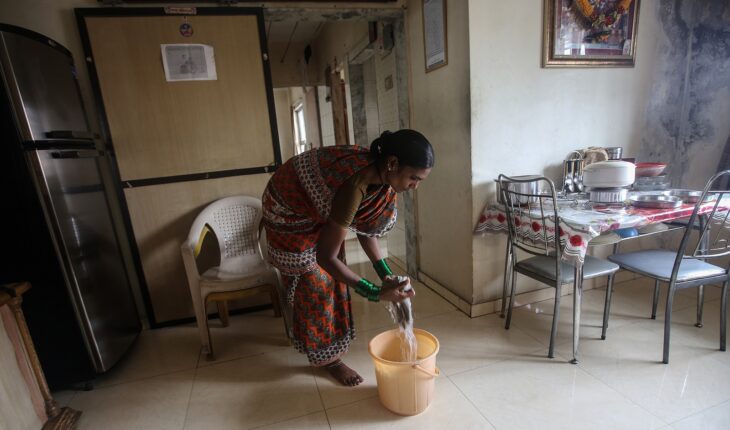
In our daily lives, we engage in countless economic transactions, often overlooking their significance and impact. From buying a cup of coffee to taking public transportation, the economics of simple things floods our routines. This article aims to shed light on the interwoven web of economic interactions surrounding these seemingly ordinary activities and explores how they shape our lives and the broader economy. From the third law of demand to consumer surplus, we are always unconsciously guided by the invisible hand of economics.
Last month we shifted to our new house in a new locality as I was unable to find a reliable servant. Suddenly I remember about the book by Sudipta Sarangi, Economics of Small Things and ideas strike in my mind. I paid 20 per cent more than their trending rates which we call equilibrium price in economics which is decided by the forces of demand and supply. I was surprised that the servant was ready to spend more time in our house and she was ready to do extra work also We can apply simple microeconomics in our daily life. Sometimes unconsciously we use economics in our daily routine from small decision-making to investment in the share market. So economics can be used to explain domestic issues as well and one such issue is managing domestic help. Our neighbours often complain about their domestic help quitting or not doing their job properly. Rarely do we find someone happy with their domestic help, and if we do, the more envious ones among us are desperate to steal them from our unsuspecting neighbours. So what does one do to retain their domestic help? The example is before you. “Why We Should Pay Our Maid More. This common experience is sufficient enough to discuss the concept and effects of efficiency wages. Efficiency wage refers to the idea of paying a higher-than-market wage to your domestic help, which ensures that your domestic helper will work with all sincerity because of the fear that in case s(he) loses the job, s(he) will be unable to find a job that will pay more than the market wage.
Moreover, we can pay one month’s advance wages so that she or he will not leave immediately. If you are eating pizza always share a slice of it with your servent or your co-worker. He or she will do work with more efficiency and these are called efficiency wages in economics and the third law of demand will work. We can also increase their income in kind, as we can offer one-time meals or even clothes.
Stories on complements show up in examples as well, such as recounting a common experience of the Indian religion while visiting the temple. Most Indians have been a victim of petty thievery and had their shoes stolen, especially if they were sporting a new pair during their visits to the temple. Shoes, by the way, are a classic example of complementary goods where the left pair is useless without access to the right pair, and vice versa. One strategy suggested by Sarangi is to separate the pairs when visiting the temple so that the thief has to hunt to find the matching pair. This strategic idea does not seem to be foolproof, however. The Swedish experience of shoe stores as they display only the left pair in the storefront, presumably to minimise the risk of theft. The gang of thieves will be unable to complete the pair.
Economic theory assumes that individuals are rational decision-makers who seek to maximize their utility or well-being. This assumption implies that individuals make choices that they believe will bring them the highest utility or satisfaction, given their money and accessibility constraints. The utility is the want satisfying capacity of the commodity or the service. According to the economics of simple things, individuals weigh the utility they expect to derive from a particular good or service against the price they have to pay. This evaluation helps determine whether the purchase is worthwhile from an economic standpoint. If you are going to market and want to buy a costly saree, have a pause of two minutes and think and do a cost-benefit analysis. If you will wear a saree of ten thousand only two times in functions then buy two sarees of five thousand each and you can wear it four times on different occasions or you can go for a rented dress also. By following these simple economics you will save your money and in an economy like India, savings are very important to increase the rate of investment. The cash in your hand is like a king and a penny saved a penny earned is an old proverb.
At the heart of the economics of simple things lies the price mechanism—the language through which goods and services are exchanged. Prices convey information about scarcity, demand, and value, allowing consumers and producers to make decisions. Whether it’s the cost of a loaf of bread or the price of a movie ticket, these seemingly trivial numbers reflect the underlying forces of supply and demand, signalling the equilibrium point where buyers and sellers agree to transact
Consumer behaviour plays a crucial role in the economics of simple things. Our preferences, tastes, and budget constraints shape the goods and services we choose to buy. Factors like brand loyalty, convenience, and quality influence our decisions. For example, opting for a sustainable product may reflect our environmental concerns, while choosing a locally sourced item may reflect our desire to support local producers. Consumer behaviour is a dynamic force that drives market demand and shapes the production and availability of goods and services. As a person who travels to Indian Airlines supports the income of the domestic country.
Dr.Harvinder Kaur, Associate Professor in Economics, Ambala, views are personal




